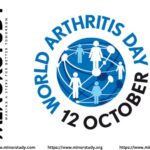🧠 Neurologist Doctors: 9 Mind-Blowing Facts That Prove How Vital They Are to Our Lives!
🩺 Introduction
Neurologist Doctors: Have you ever paused to think about the heroes behind the healing of the human brain and nervous system? These aren’t caped crusaders but neurologist doctors—trained professionals who work tirelessly to diagnose, treat, and manage some of the most complex medical conditions affecting the nervous system.
- 🩺 Introduction
- 📜 History of Neurology and Neurologist Doctors
- 🧠 Who Is a Neurologist?
- 🧠 9 Mind-Blowing Facts About Neurologist Doctors
- 🤯 Common Neurological Disorders Neurologists Treat
- ❓ Frequently Asked Questions (FAQs)
- Q1. What exactly does a neurologist do?
- Q2. When should I see a neurologist?
- Q3. Are neurologists different from neurosurgeons?
- Q4. Can neurologists treat mental health issues?
- Q5. Do children need neurologists?
- 📅 Timeline of the Neurology Profession
- 💫 Significance in Daily Life
- 🌍 Societal Importance of Neurologists
- 1. Public Health Warriors
- 2. Medical Educators
- 3. Support Mental Health Infrastructure
- 4. Reduce Disability
- 💬 Human Impact – Stories That Touch the Soul
- 🙏 How to Wish or Appreciate a Neurologist
- 🧩 Key Points Recap
- 🧠 Final Thoughts: Why Neurologist Doctors Deserve More Recognition
This article takes a deep dive into the fascinating world of neurologists, their history, significance, daily contributions, societal value, and more—all presented in a warm, accessible, and engaging tone.
📜 History of Neurology and Neurologist Doctors
The practice of neurology dates back thousands of years, but as a structured medical field, it started gaining recognition in the 18th and 19th centuries.
🧭 Key Historical Milestones:
| Year | Event |
|---|---|
| ~1700 BCE | Ancient Egyptian texts describe brain trauma and spinal cord injuries. |
| 1770s | Neurology as a scientific field emerges in Europe. |
| 19th Century | Jean-Martin Charcot becomes known as the “father of modern neurology.” |
| 1950s–Present | Rapid evolution with imaging tools like CT, MRI, EEG. |
Neurology today includes specialties like:
Pediatric Neurology
Neuro-oncology
Neuroimmunology
Epileptology
Stroke medicine
Neurocritical care
🧠 Who Is a Neurologist?
A neurologist is a medical doctor specializing in diagnosing and treating disorders of the brain, spinal cord, peripheral nerves, and muscles. Unlike neurosurgeons, neurologists do not perform surgery—they focus on clinical care, diagnostics, and treatment.
🧠 9 Mind-Blowing Facts About Neurologist Doctors
Brain detectives: Neurologists are often called the Sherlocks of medicine—they use symptoms and diagnostic tools to crack complex health mysteries.
Extensive training: Becoming a neurologist requires 10–14 years of education, including medical school, residency, and often, fellowship.
Handle 600+ conditions: From stroke, epilepsy, dementia, Parkinson’s, MS, to migraines and rare nerve diseases, they manage it all.
Non-surgical but life-saving: They don’t operate, but their decisions can prevent paralysis, coma, or even death.
Critical for aging populations: As life expectancy increases, so do neurodegenerative disorders—neurologists are key to elder care.
Involve mental health: They often collaborate with psychiatrists because mental health and brain health are deeply connected.
Digital pioneers: Neurologists were early adopters of AI, robotics, and telemedicine to enhance diagnosis and care.
Global shortage: Despite demand, there’s a worldwide shortage—particularly in rural and underserved areas.
Heroes in silence: Most people don’t understand their depth of expertise, making them unsung heroes in the medical world.
🤯 Common Neurological Disorders Neurologists Treat
| Disorder | Description |
|---|---|
| Stroke | Disruption of blood flow to the brain |
| Epilepsy | Seizure-causing neurological disorder |
| Multiple Sclerosis (MS) | Immune system attacks nerve coverings |
| Parkinson’s Disease | Progressive motor system disorder |
| Dementia / Alzheimer’s | Cognitive decline and memory loss |
| Migraine | Severe, recurring headaches |
| Neuropathy | Damage to peripheral nerves |
| Sleep Disorders | Includes narcolepsy and insomnia |
| Brain Infections | Meningitis, encephalitis |
❓ Frequently Asked Questions (FAQs)
Q1. What exactly does a neurologist do?
They examine the nervous system, order imaging tests, diagnose neurological conditions, and provide non-surgical treatment or refer to specialists if surgery is required.
Q2. When should I see a neurologist?
If you have recurring headaches, seizures, numbness, memory loss, or tremors, consult a neurologist.
Q3. Are neurologists different from neurosurgeons?
Yes. Neurologists diagnose and treat neurological disorders without surgery, while neurosurgeons perform surgical procedures.
Q4. Can neurologists treat mental health issues?
They collaborate with psychiatrists for issues like depression linked to neurological diseases, but do not primarily treat psychiatric disorders.
Q5. Do children need neurologists?
Yes, pediatric neurologists specialize in neurological conditions affecting children, such as developmental delays, seizures, and ADHD.
📅 Timeline of the Neurology Profession
| Period | Milestone |
|---|---|
| Ancient times | Ayurveda, Greek, and Egyptian medicine mention nerve damage. |
| 19th century | Neurology becomes a formal medical specialty. |
| 1930s | EEG invented for epilepsy diagnosis. |
| 1970s | CT and MRI revolutionize brain imaging. |
| 2000s | Rise of neurogenetics and AI in diagnosis. |
💫 Significance in Daily Life
The nervous system is like the electrical wiring of the body. Without neurologists:
We couldn’t diagnose strokes quickly, leading to fatalities.
Dementia would remain undiagnosed until advanced stages.
Chronic pain and migraines would be misunderstood or untreated.
MS and Parkinson’s would progress without specialized support.
Children with epilepsy or developmental issues would lack care.
In short, neurologists make modern neurological well-being possible.
🌍 Societal Importance of Neurologists
1. Public Health Warriors
Neurologists help combat widespread diseases like strokes and Alzheimer’s that affect millions annually.
2. Medical Educators
They teach future doctors, lead research, and shape global medical policy for neurological care.
3. Support Mental Health Infrastructure
They provide early intervention for conditions with both neurological and psychological roots.
4. Reduce Disability
With accurate and early diagnosis, they help reduce long-term disability, saving governments and families both emotionally and financially.
💬 Human Impact – Stories That Touch the Soul
A 38-year-old man saved from lifelong paralysis due to timely stroke intervention by a neurologist.
A child diagnosed early with epilepsy goes on to become a robotics engineer.
A grandmother with dementia regains quality of life, thanks to medication and care guided by a neurologist.
These real-life stories reflect how neurologists don’t just heal brains—they restore lives.
🙏 How to Wish or Appreciate a Neurologist
Celebrate World Brain Day (July 22) or Doctor’s Day (July 1 in India) to appreciate neurologists.
💌 Heartfelt Wishes:
“Your dedication to healing minds and nerves inspires awe. Thank you for being the brain’s best friend.”
“You turn chaos into clarity for patients. Happy Neurology Appreciation Day!”
“A neurologist’s work touches lives in ways most never see—but we are deeply grateful.”
🧩 Key Points Recap
✅ Neurologists are doctors who specialize in non-surgical neurological care.
✅ Their history goes back centuries, but modern neurology emerged in the 19th century.
✅ They treat conditions like stroke, epilepsy, Parkinson’s, dementia, MS, and more.
✅ Neurologists play a vital role in daily health, aging, and mental stability.
✅ Despite their importance, neurologists are in short supply globally.
✅ Their work has tangible emotional, physical, and economic impacts on patients and society.
🧠 Final Thoughts: Why Neurologist Doctors Deserve More Recognition
In a world where stress, lifestyle diseases, and aging are on the rise, neurologists stand like sentinels protecting the body’s command center—the brain. Their ability to read complex patterns of symptoms and connect them to invisible nerve signals is nothing short of magical.
A neurologist doesn’t just treat diseases; they preserve personality, memory, mobility, and dignity.
So next time you come across someone struggling with migraines, seizures, or tremors—remember there’s a dedicated doctor behind the scenes, piecing the puzzle together.
Let’s celebrate these brilliant minds who protect ours.








